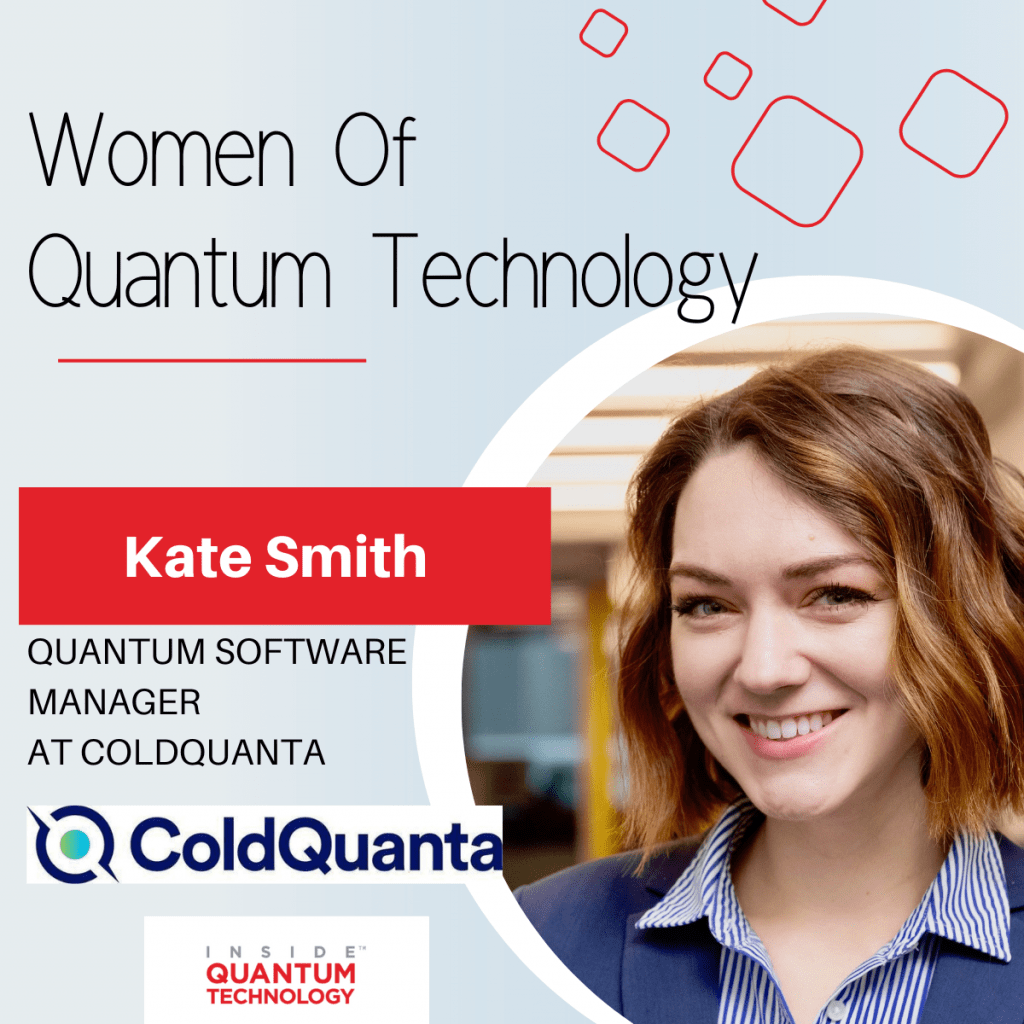Because the quantum industry is constantly looking for new talent, there are plenty of success stories of individuals getting hired at world-leading quantum computing companies and propelling them into a new chapter of their careers. One of these is Kate Smith, who recently became a Quantum Software Manager at ColdQuanta, a leading global quantum technology company. Before joining ColdQuanta, Smith was at the University of Chicago as a postdoctoral researcher with a focus on quantum computer architecture. When looking at hubs for quantum technology, Chicago is one of the largest in the U.S. thanks to the Chicago Quantum Exchange, which indirectly helped Smith better understand the quantum community. Now at ColdQuanta, Smith is very much enjoying the transition from academia to industry life. “Industry is a lot different from academia,” she said. ” Attending daily meetings was new for me, but what I realized with regular check-ins is that I’m able to learn in real-time about other projects that I can get involved in. Your skillset grows dramatically in breadth. I can hear about an interesting new proposal during a team meeting and immediately follow up to learn more.”
Smith originally studied electrical engineering before transitioning to quantum computing. “When the concept of quantum computing was first explained to me, I didn’t believe it, to be honest,” Smith stated. “I needed to really dig into the details. I had a similar process with electrical engineering. I thought electricity was too cool to be real, you flip a switch and your lights turn on? I just wanted to know more.” Thanks to her curiosity, Smith pursued a Ph.D. focused on quantum computing which helped her find her next step at ColdQuanta.
Like many others just joining the quantum industry, Smith found a welcoming community. “Everyone is very receptive to more people joining the community,” Smith added. “If you’ve known about quantum for five minutes or fifteen years, it doesn’t matter, you’re still a part of the group.” Smith hopes to pay this hospitality forward by returning to academia and mentoring the next generation. As she explained, “I would like to return to academia eventually, but I feel gaining skills in the quantum industry is important – for my professional development and for my mentees. Most students are going to want to understand and learn the skills needed to succeed in the industry, and I think that my experience at ColdQuanta not only benefits them but me as well.”
Working at ColdQuanta will no doubt provide Smith with those valuable skills. “I primarily work on compiler optimizations,” Smith explained. “We’re thinking about ways that we can target this near-term hardware and make the most of it. There’s a lot that can be done in the space of hardware-software co-design. For example, if we have hardware that is really close to fault tolerance, we can use software to our advantage to make the most of every qubit. Techniques like error mitigation push us closer to the thresholds required for quantum computation that has serious impact.” Smith finds that her industry position allows her to pursue her work in quantum software in many creative ways. She has also found a very supportive network within ColdQuanta. “We’re all working on projects that we’re really interested in, and we try to balance the load. Knowing that you’ve got the support of your team behind you is also really helpful.” As ColdQuanta has grown to now over 200 employees, others like Smith can also appreciate the supportive networks within the company.
With mentoring in the back of her mind, Smith also understands that the industry has work to do to include more underrepresented groups in the quantum workforce. “Exposure is key,” Smith stated. “Knowing that you walk into a room and you’re the only woman there can be incredibly intimidating simply because you feel different from everyone else.” Not only does Smith believe that more classically disenfranchised individuals are needed within STEM, but the concept of who a scientist is needs to change. As Smith explained: “We need to make ‘scientist’ have a less rigid definition so that it becomes a term that individuals feel comfortable using to describe themselves. I don’t have to fit into a box to be a scientist. I am a scientist because I am interested in my field. I can have my own identity but also be a scientist.”
Kenna Hughes-Castleberry is a staff writer at Inside Quantum Technology and the Science Communicator at JILA (a partnership between the University of Colorado Boulder and NIST). Her writing beats include deep tech, the metaverse, and quantum technology.
